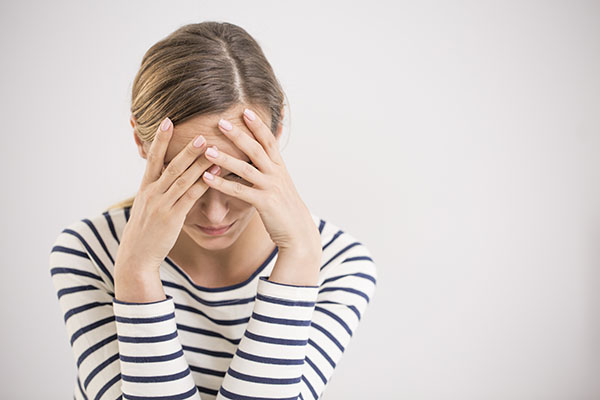When to Consider Ketamine Therapy for Depression

You should consider getting ketamine therapy as a treatment for depression if you have tried conventional treatments like antidepressants and psychotherapy as well as alternative procedures like electrostimulation or transcranial magnetic stimulation.
The Centers for Disease Prevention and Control estimate that approximately 16 million people in the U.S. deal with depression yearly. A majority of these people will respond to standard treatments like antidepressants, but a small fraction do not get any relief.
Ketamine therapy can be an effective way to address the symptoms of treatment-resistance depression. Depression is the leading cause of disability worldwide, and it takes away a person’s will to perform the simplest tasks.
How ketamine therapy helps with depression symptoms
Ketamine was initially developed as an anesthetic in the 1960s, mostly for use on animals. The Food and Drug Administration (FDA) approved it for use on humans in 1970, and it was one of the main anesthetics used to treat injured soldiers during the Vietnam war. It later became popular as a party drug among ravers.
Reasons to consider ketamine infusions include:
1. Suicidal thoughts
Ketamine is sometimes used by emergency responders to calm down agitated patients who have been rescued from suicide attempts. Some say doctors observing its use on suicidal patients and its effects are how it started being used as a treatment for depression.
2. Treatment-resistant depression
Ketamine treatments are generally never recommended as a first course of treatment for depression unless in cases where the patient is suicidal and requires immediate relief from the symptoms. Most depression treatments take weeks or months to take effect, so alternatives like ketamine therapy can be used to produce faster results.
Ketamine leads to a dissociative experience or, in simpler terms, an out-of-body experience, which is why it was once a popular party drug. Ketamine can produce euphoria or a buzz that lasts up to two hours. It should be noted that casual use of ketamine is not comparable to ketamine treatment since the latter often involves adding other psychiatric drugs with the ketamine being infused.
Ketamine can also be addictive, so it should not be used without the proper supervision of a doctor to minimize risks.
There are two main types of ketamine used to treat depression: racemic and esketamine. Racemic is used for ketamine therapy, while esketamine is used as a nasal spray. While esketamine has been approved by the FDA as a treatment for depression, the intravenous delivery of ketamine is known to be the more effective approach for treating treatment-resistant depression.
Ketamine therapy typically involves visiting a clinic for treatment sessions that typically take less than an hour. The effects of such treatments can kick in as quickly as a few hours and last for days. Treatment typically involves patients getting up to six treatment sessions during the first two weeks of starting it and moving on to single sessions every four to six weeks.
What to expect during treatment
Getting ketamine infusions usually starts with a consultation with a doctor or other qualified healthcare provider. The doctor will discuss the patient’s mental and physical health and conduct comprehensive tests going over metrics like their blood pressure and heart rate to determine their health status. Patients might be asked to take a drug test to ensure they are not currently addicted to any illicit drugs. Ketamine can be addictive, so patients who have had substance abuse problems in the past are evaluated on a case-by-case basis to determine their risks.
New patients are typically scheduled to receive up to six treatments during their first two weeks before spacing their treatments further apart. Some patients only have to get infusions every six weeks after their first two weeks.
Patients sit on a reclining chair during their treatment sessions, and blood pressure and heart rate monitors are connected. A cocktail of ketamine and other psychiatric drugs is then delivered into the patient’s bloodstream through an IV. Many patients report the experience as relaxing and soothing. Most people enjoy the experience but they might be a bit disoriented afterward. Most of the feelings brought on by the treatment are gone in 45 minutes afterward, but its effects on depression symptoms last much longer.
Ketamine treatment might be what you need to get past depression
Ketamine therapy often brings relief to those who antidepressants, talk therapy, and alternative treatments have failed to help. Give us a call or stop by our Fresno clinic to learn more about the procedure and find out if it is right for you.
Request an appointment here: https://omgwellnessmd.com or call Optimal Medical Group at (559) 425-1118 for an appointment in our Fresno office.
Check out what others are saying about our services on Yelp: Ketamine Therapy in Fresno, CA.
Related Posts
Prescription weight loss medications can help people lose weight safely when lifestyle changes alone aren't enough and medical risks from excess weight are high. These prescription weight loss drugs work by reducing appetite, limiting fat absorption, or affecting how the body regulates appetite and food intake. Used under the guidance of a health care professional,…
Eligibility for prescription weight loss is mainly based on body mass index (BMI) and weight‑related health conditions like diabetes or high blood pressure. In most cases, adults qualify if they have obesity (BMI of 30 or higher) or a BMI of at least 27 plus problems such as type 2 diabetes, high cholesterol, or sleep…
Insurance coverage for prescription weight loss is possible, but it's tightly limited and depends on the specific plan, diagnosis, and documented medical need. In most cases, plans only cover weight loss medication when obesity is treated as a chronic disease, not for cosmetic weight loss. To qualify, patients usually need a high BMI, weight‑related conditions,…
People searching for prescription weight loss near me in Fresno usually want one thing: a safe, doctor-led way to finally lose weight and keep it off. At Optimal Medical Group (OMG), prescription weight loss is delivered through OMGLean, a 12‑week, non-surgical medical weight management program that combines FDA approved medications, advanced testing, and intensive lifestyle…

















